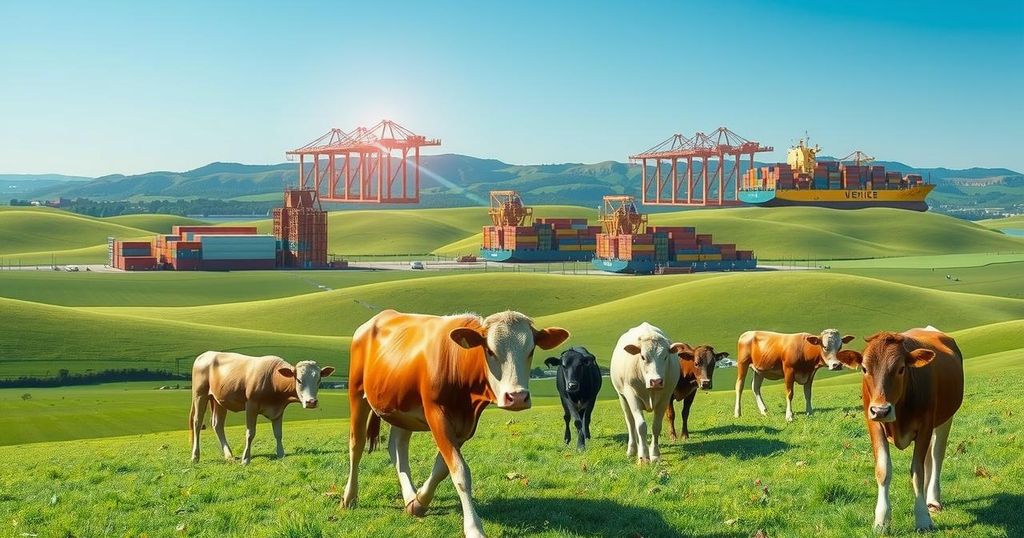Paraguay aims to significantly increase its beef exports to Morocco, currently exporting 4,500 tons annually. Due to six years of drought affecting local agriculture, Morocco seeks to supplement its meat supply through imports from various countries. Minister Bouari noted a 38% decline in the national livestock herd since 2016. Morocco’s livestock import spending has risen substantially, indicating a growing need to secure meat sources.
Paraguay is actively pursuing opportunities to enhance its beef exports to the Moroccan market, aiming to significantly grow its presence. Recent reports indicate that Paraguayan meat sector representatives held discussions with Moroccan buyers, expressing optimism about forging new agreements to boost beef shipments to Morocco, where they currently export around 4,500 tons annually.
Due to ongoing drought conditions that have severely affected local agricultural production for six consecutive years, Morocco has increasingly relied on beef imports to satiate local demand. Minister of Agriculture Ahmed Bouari has highlighted a drastic decrease in livestock numbers, with the national herd declining by 38% since 2016.
Historically, Morocco slaughtered approximately 230,000 cattle; however, that figure has fallen to just 150,000. In response to the dwindling livestock population, Morocco has sought to import beef and cattle from various sources, including Romania and Argentina.
Additionally, it has emerged that Morocco is evaluating the prospect of importing sheep from Australia in preparation for the upcoming Eid al-Adha festival. The country’s import expenses reached MAD 4.8 billion, reflecting an 83% rise compared to the previous year.
As of November last year, Morocco’s livestock imports swelled to 110,000 tonnes, exclusive of VAT and customs duties, up from 60,000 tonnes in 2023. During the last Eid al-Adha celebration, Morocco imported approximately 600,000 sheep designated for sacrifice, primarily from Spain and Romania.
In summary, Paraguay’s intention to augment its beef exports to Morocco comes at a critical time when Morocco’s agriculture is suffering due to prolonged drought conditions. The significant reduction in livestock has compelled Morocco to increase its reliance on imports, setting the stage for potential new trade agreements. The growth in livestock imports signals ongoing adjustments to meet domestic demand.
Original Source: www.moroccoworldnews.com






